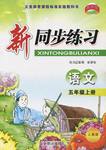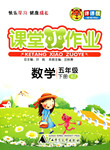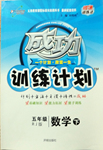题目内容
In every country there are times to celebrate, weddings, birthdays, religious festivals. Although the U.S.A is a multi-cultural society, where different groups celebrate their own traditional 21 , Christmas is the most popular holiday in the U.S.A. Some of the 22 of Christmas time are old and others are newer.
Already in the late 18th and the 19th centuries, people felt sentimental (眷恋的) about Christmases of the past. The American 23 , Washington Irving, wrote in 1819 about the old-fashioned Christmas he experienced in England. He was taken in a stagecoach (驿站马车) full of happy people, food and presents, to an old house in the 24 . There, he found a crowd of happy farmers, lots of food and drinks, snow, games and ghosts.
The first Christmas card, which was printed in England, showed people eating and drinking 25 . It was sent in 1846, but Christmas cards did not become really 26 until the 1860s, when color printing became possible.
By this time, stagecoaches had 27 running, replaced by the railroad. More and more families 28 the country and were living in towns and cities, but the dream of the 29 Christmas remained. The loaded stagecoach driving along the country road through the snow still 30 on many Christmas cards today.
| 【小题1】 |
|
| 【小题2】 |
|
| 【小题3】 |
|
【小题1】A 【小题1】B 【小题1】A 【小题1】B 【小题1】B
【小题1】C 【小题1】C 【小题1】A 【小题1】D 【小题1】B
解析【小题1】根据第一句可知,不同群体庆祝不同的传统节日。故选A。
【小题1】文章讲的是传统节日,与圣诞节有关的传统既有旧的也有新的。故选B。
【小题1】华盛顿欧文是一位作家。故选A。
【小题1】根据下一句的farmers可知,他坐马车是去乡下的一个老房子。故选B。
【小题1】考查形容词辨析。A“危险地”;B“开心地”;C“平等地”;D“大方地”。圣诞卡上显示人们在开心地吃饭和喝东西。故选B。
【小题1】圣诞卡到十九世纪六十年代才开始流行。popular“流行的,受欢迎的”。故选C。
【小题1】根据后半句可知,铁路代替了马车。stop doing sth.“停止做某事”。故选C。
【小题1】越来越多的家庭离开乡下,搬到城镇或城市生活。故选A。
【小题1】 old-fashioned“老式的”。人们离开乡下后,圣诞节的一些传统保留了下来。故选D。
【小题1】现在的许多圣诞卡上还会出现老式的马车。appear“出现”。故选B。

 教学练新同步练习系列答案
教学练新同步练习系列答案 课前课后同步练习系列答案
课前课后同步练习系列答案 课堂小作业系列答案
课堂小作业系列答案 黄冈小状元口算速算练习册系列答案
黄冈小状元口算速算练习册系列答案 成功训练计划系列答案
成功训练计划系列答案 倍速训练法直通中考考点系列答案
倍速训练法直通中考考点系列答案